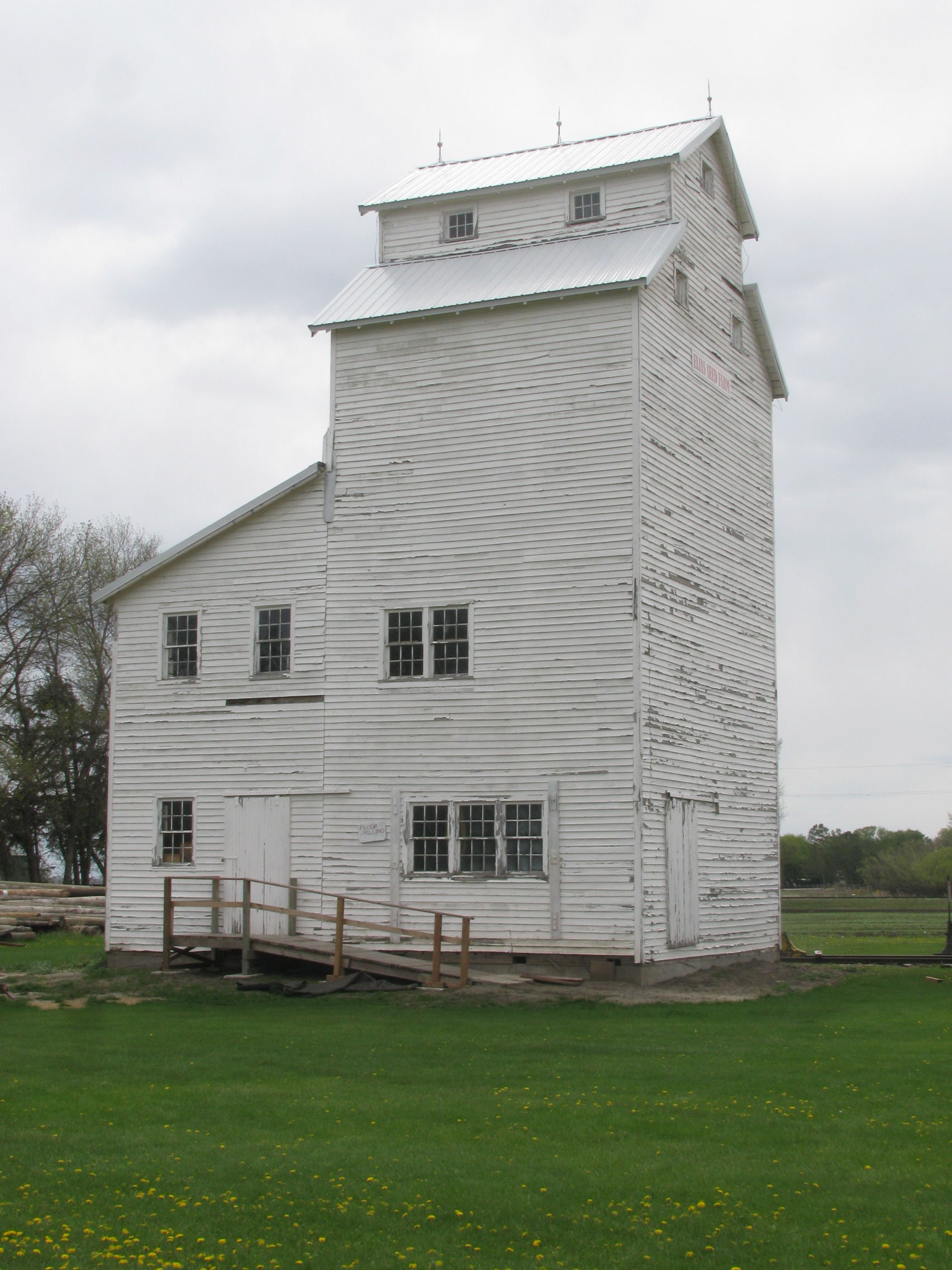Elevator - 1945

It was located on the former site of the Eichenfeld German School. It was part of a thriving family farm initially established by Gerhard J. and Justina (Fehr) Elias, when they moved to the property around 1922 and was later owned by George G. and Martha (Deorksen) Elias.
The Elias family farm was progressive and innovative in its day and offered employment opportunities for people in the surrounding community. The bustling farm required hard work of everyone including the ladies. The Elias women and others in the community made meals for the family and crew of workers, tended gardens and took care of some of the livestock.
The farm started to specialize in seed production in the mid 1930’s. It innovated the production of acclimatized artificially dried seed corn and George got his start in registered seed in 1934, when he grew O.A.C 21 barley seed as a junior grain club member. “The following year he began growing registered seed of other grains. He was awarded the Ian MacPhail trophy as the junior seed club member who had made the greatest contribution to the production of registered seed in Manitoba. In 1936 he concluded his first export deal, shipping a part car lot of Ceres wheat to the Greater North Dakota Crop Association”. (Free Press Tuesday April 1, 1947).
His high-quality of wheat was sold at $1.50 per bushel, which was about three times the going rate for commercial grades of wheat. Seed potatoes and various other varieties of registered and certified grain were also grown.
Construction on the seed cleaning elevator began in 1943 to support increased demand of the certified seed grain operation. At times there were up to 16 men working on it at once, laying the 2x6 lumber painstakingly one on top of the other and after two years of construction it was completed. It cost approx. $8,000 to build but when it was finally in operation, the plant could clean up to 1,000 bushels a day and was a state-of-the-art seed cleaning facility for many years.
In 1946 the farm’s best barley won first prize in a competition at the Brandon Winter Fair. George also entered the National Barley Contest sponsored by the Barley Improvement Institute of Canada competing against over 1200 contestants. This contest required submission of an entire crop from a 40 acre field and after the selected seed went through the standard cleaning process in the plant, the whole family and some workers spent many hours hand picking through the seeds. As a result, “the contest crop yielded 48 bushels per acre, weighed 50 pounds per bushel and had a germination of 100 percent.” (Free Press Tuesday April 1, 1947). The winning seed was later sold and shipped to Albania.
Under the ownership of George G Elias, the farm won the National award again in 1950 and as a result of achieving this honor twice, George was dubbed “Barley King” in the community. George was an active member of the Canadian Seed Growers Association for over 65 years and distributed Elias Seed Farm certified seed throughout Canada as well as internationally until the year 2000.
Standing at almost 50’ tall, the elevator was moved to the Pembina Threshermen’s Museum (PTM) in Feb 2015, where it now displays Elias family history (second floor) and where the museum’s antique flour mill can be found (first floor), allowing visitors to watch wheat from the PTM’s field being milled during special events.
The elevator stands as a reminder of SO many great giants (elevators) that have been taken down over the years.
~ Preserving the Gems of the Past ... for Those of the Future! ~



